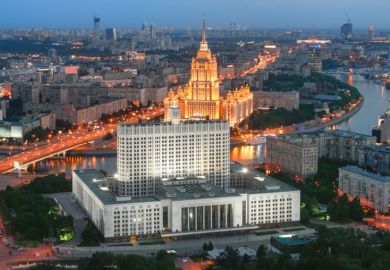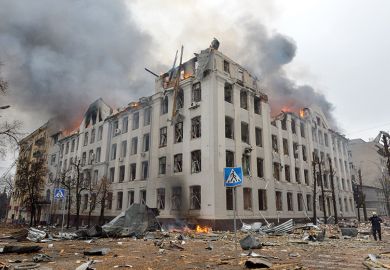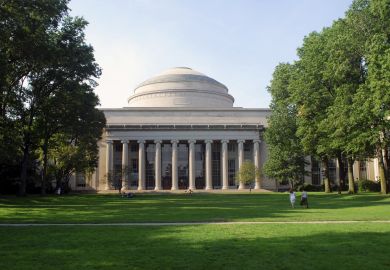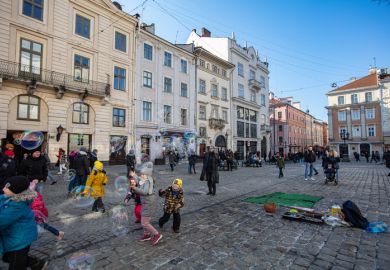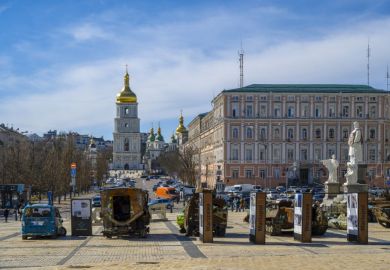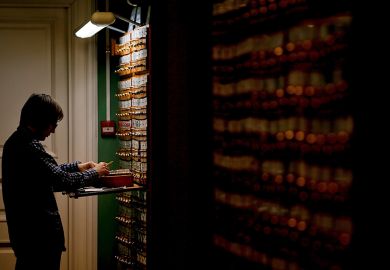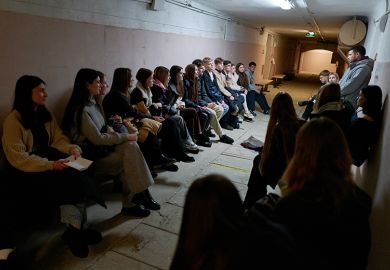The ongoing Russian attack on Ukraine has prompted academic institutions, notably in Western states, to reconsider their collaborations with Russian counterparts.
The responses have not been consistent, however. There have been statements of condemnation. There have been statements of support for Ukraine, Ukrainian staff and students. Some universities have been more broadly supportive of all academics and students affected by the conflict, regardless of nationality. At the most extreme end, ties with Russia have been cancelled altogether.
The latter move is particularly misguided, even injurious. For one, it ignores the important role played by cross-institutional cooperation, which can serve to counter anti-intellectual forces and the darker side of patriotism. There are also fields of endeavour that still require research and collaborative endeavour, irrespective of the political machinations of leaders and regimes.
Harvard president Lawrence Bacow also emphasises the importance of academic diplomacy and points out that “individuals are not necessarily responsible for the policies of their governments”.
Indeed, an even more convincing argument against banning contact with Russian institutions and killing off academic diplomacy comes from the doubly punitive nature of the move. As things stand, a climate of fear reigns over those in Russia opposing the conflict, many of whom face potential arrest. “All the Russian academics I know oppose the war,” claimed the University of Oxford academic Simon Marginson. “The internal situation in Russia will get nastier and they will need solidarity, so there is a case for maintaining ties.” Or, as Michigan State University president Samuel Stanley put it, emphasis should be placed on “supporting one another with dignity, empathy and mutual respect”.
In Russia itself, thousands of academics, students and graduates have openly condemned the Ukraine War. A letter with 7,500 signatories from the Moscow State University stated that there was “no room for euphemisms or excuses. War is violence, cruelty, death, loss of loved ones, powerlessness and fear that cannot be justified by any goal.”
Notwithstanding all this, several institutions have taken the pathway of exclusion. The University of Nottingham’s executive board, on 10 March, announced that it would “end all formal links with universities in Russia, including current research projects, bilateral agreements, memoranda of understanding and any projects currently under development”. Despite acknowledging that academic links were “vital in promoting peace and understanding” and the fact that many Russian academics and students opposed the war, vice-chancellor Shearer West was swayed by a statement from the Russian Union of Rectors expressing what she described as “unequivocal support” for the invasion of Ukraine.
The Massachusetts Institute of Technology has also ended its productive and fruitful collaboration with the Skolkovo Institute of Science and Technology (Skoltech). The decision was taken “with deep regret”, MIT explained in a statement, “because of our great respect for the Russian people and our profound appreciation for the contributions of the many extraordinary Russian colleagues we have worked with”.
Ostracising colleagues in whom MIT still has “steadfast belief” seems an odd way to express respect.
The Australian National University has taken a similar path, having officially announced the suspension of all ties and activities with Russian institutions. Despite acknowledging the importance of “freedom of inquiry and academic collaboration”, the university’s leaders have shut down both, on the grounds that they depend on the “peace, freedom and democracy” that Russia’s invasion of Ukraine threatens.
The decision did not pass without comment. In an open letter to the university’s board, 23 academics, mostly from ANU and mostly of Russian descent, reiterate the damage that will be caused by the policy, which “primarily affects the research and educational institutions in Russia, and ultimately Russian scholars who may be the last remaining voice of reason in the country”. To exclude Russian academics striving for international collaboration will have a “devastating effect” and do little to arrest “the country’s descent into the dark ages”. It will also aid the isolationist agenda of Kremlin propaganda, which will interpret it as “yet another case of western Russophobia”.
Any measures undertaken should be “better targeted and not indiscriminately punish scholars in Russia”, the letter concludes.
These are sound points and go to the heart of the usefulness of academic engagement in times of crisis. But instead of reconsidering the university’s stance in the spirit of collegial enquiry, ANU’s deputy vice-chancellor, Sally Wheeler, gave a disingenuous response. The boycott, she explained, only applied in an institutional sense, including “formal activities, exchanges, and research programmes that involve the university as an institution”. In other words, virtually everything pertaining to collaboration and engagement.
The intention, insisted Wheeler, was not to bar individual contact between ANU staff and Russian colleagues, “except those who would come under the remit of foreign interference or which would contravene existing economic sanctions”. This meaningless distinction, for which undemocratic university executive boards are famous, reveals how the very pursuit of intellectual enquiry suffers from the ravages of war.
As Harvard’s Bacow said, “there are things that we as universities can do that our governments sometimes find challenging or hard to do”.
ANU, Nottingham and MIT may have slammed the door on academic diplomacy, but at least some institutions are offering a chink of light.
Binoy Kampmark is senior lecturer in the School of Global, Urban and Social Studies at RMIT University, Melbourne.
Register to continue
Why register?
- Registration is free and only takes a moment
- Once registered, you can read 3 articles a month
- Sign up for our newsletter
Subscribe
Or subscribe for unlimited access to:
- Unlimited access to news, views, insights & reviews
- Digital editions
- Digital access to THE’s university and college rankings analysis
Already registered or a current subscriber?

